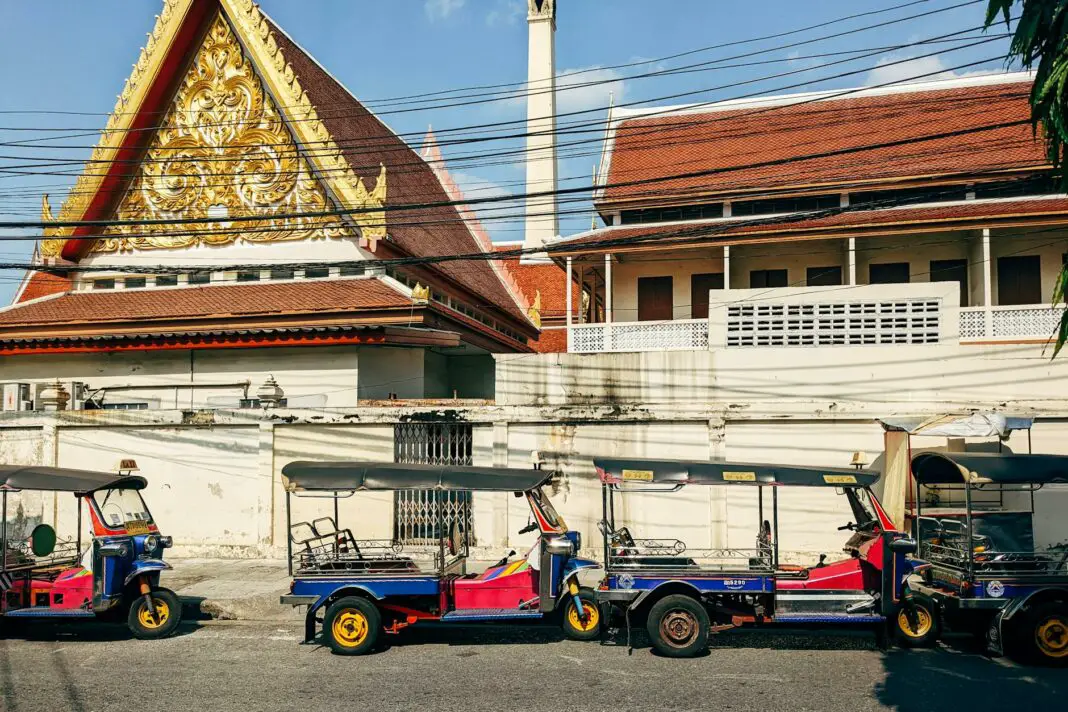Reliable information for travelers reveals that a trip to Thailand is not just about stunning beaches and cultural experiences; it’s also a burgeoning eco-tourism paradise that offers endless adventure. This vibrant Southeast Asian nation is quickly establishing itself as a top destination for eco-conscious travelers who are eager to explore breathtaking landscapes while preserving the natural beauty for future generations. Through this blog post, we will delve into whether Thailand truly is the ultimate eco-tourism paradise for adventurers, exploring its lush jungles, diverse wildlife, and sustainable practices that make it a unique spot for nature enthusiasts.
As we navigate through Thailand’s eco-friendly offerings, we will cover everything from its national parks and wildlife sanctuaries to the rich cultural heritage that has made the country a rising star in the eco-tourism domain. Whether you’re an adrenaline junkie looking for your next adventure or a nature lover wanting to experience the unparalleled beauty of Thailand, this post will guide you in discovering the many facets of eco-tourism that await you in this magnificent land.
Table of Contents
- Why Choose Thailand for Eco-Tourism
- Exploring Thai National Parks
- Wildlife Conservation in Thailand
- Sustainable Practices in Local Communities
- Adventurous Activities in Thailand
- The Thai Eating Experience
- Embracing Thai Culture
- Final Thoughts on the Thai Eco-Tourism Experience
- FAQ
Why Choose Thailand for Eco-Tourism
As emerging eco-tourism hotspots go, Thailand stands out with its stunning biodiversity, captivating landscapes, and a growing commitment to sustainable travel. The country is rich in natural wonders, boasting vast forests, pristine beaches, and awe-inspiring mountains that are simply breathtaking. Thailand is dedicated to preserving its natural environment, which is evident in its numerous initiatives aimed at promoting eco-friendly tourism practices. These practices not only protect the environment but also enhance the overall travel experience, providing adventurers with the chance to connect deeper with nature and local culture.
Moreover, Thailand’s welcoming hospitality complements its natural allure. Visitors can rest assured that by choosing eco-tourism options in this beautiful country, they are supporting local economies and encouraging practices that benefit both the environment and local communities. From engaging with indigenous tribes to enjoying the myriad of activities that leave a minimal carbon footprint, travelers can indulge their wanderlust while making a positive impact. Opting for Thailand as your next eco-tourism destination means embracing sustainability without sacrificing adventure or enjoyment.
Exploring Thai National Parks
Venturing into Thailand’s national parks offers a playground for nature lovers and thrill-seekers alike. With distinct ecosystems, each park presents unique trails, stunning waterfalls, and opportunities to witness various forms of wildlife in their natural settings. For instance, Khao Sok National Park, known for its ancient rainforests and surreal limestone formations, presents countless trekking trails for hikers of all levels. The park is home to the iconic Rafflesia arnoldii, the world’s largest flower, and visitors often report breathtaking encounters with elephants and hornbills.
Another striking national park worth exploring is Erawan National Park, famous for its seven-tiered waterfall system. Each tier unveils inviting emerald pools perfect for a refreshing dip after a challenging trek. Whether opting for a nature walk, a refreshing swim, or simply marveling at stunning scenery, Thailand’s national parks cater to adventure seekers, all while promoting sustainable tourism by maintaining trails and protecting wildlife habitats. Capturing the beauty of these natural wonders is complemented by user-friendly parks that offer educational tours and programs to enlighten visitors about the region’s ecological significance.
Wildlife Conservation in Thailand
Wildlife conservation in Thailand is a noteworthy aspect that adds layers of richness to the eco-tourism experience. The country houses a diverse array of species, including elephants, gibbons, and various exotic birds, which are often at risk due to habitat loss and illegal poaching. Many eco-tourism initiatives focus on wildlife protection, emphasizing ethical gardens and sanctuaries that prioritize animal welfare. Responsible travelers can visit places like the Elephant Nature Park, where they can support ethical elephant rehabilitation and learn about the importance of wildlife conservation.
As eco-tourists, travelers can engage in volunteer programs that contribute to the understanding and safeguarding of local wildlife. This immersive experience grants deeper insights into the ecosystem, enabling participants to play a fulfilling role in preserving the rich biodiversity of Thailand. By participating in efforts that foster wildlife conservation, adventurers not only garner memorable experiences but also demonstrate that eco-tourism can be captivating while ensuring the protection of majestic creatures that roam this beautiful land.
Sustainable Practices in Local Communities
Embracing sustainable practices within local communities is vital for reinforcing Thailand’s reputation as an eco-tourism paradise. Numerous villages and local organizations prioritize sustainable living, enabling travelers to engage with authentic cultural experiences while supporting local economies. For instance, embracing traditional farming methods and sustainable crafts promotes economic resilience among communities, allowing travelers to immerse themselves in cultural experiences while contributing to social equity and environmental preservation.
Visitors can participate in community-driven projects, such as organic farming or handicraft workshops, that not only provide economic support but also educate travelers on sustainable practices. Such interactions serve to enhance cultural appreciation, making for a well-rounded travel experience fraught with meaningful connections. By selecting accommodations and activities focused on sustainability, visitors have a unique opportunity to forge a deeper bond with the local landscape, ensuring that eco-tourism remains respectful and beneficial for all stakeholders involved.
Adventurous Activities in Thailand
Adventure enthusiasts will find plenty to satisfy their wanderlust in Thailand, where a variety of thrilling activities await. From jungle treks to scuba diving, the possibilities are boundless. Whether one seeks the adrenaline rush of white-water rafting in Pai or the calmness of kayaking through mangroves, every activity can yield unforgettable memories. Encompassing the rich natural diversity, the adventure spectrum ranges from trekking up the jagged trails of Chiang Mai to exhilarating zip-lining experiences over lush canopies.
For those captivated by underwater exploration, destinations like the Similan Islands boast clear waters teeming with vibrant marine life. Diving and snorkeling opportunities here cater to adventurers eager to discover Thailand’s underwater ecosystems. Engaging in these adventures promotes awareness and appreciation for nature, and choosing eco-friendly options guarantees that the landscapes will remain pristine for future travelers. Ultimately, engaging in exhilarating activities while embracing a sustainable approach encapsulates the essence of what eco-tourism stands for in Thailand.
The Thai Eating Experience
The culinary scene in Thailand is another facet that embodies sustainability and authenticity. Street food, rich in flavors and traditions, allows travelers to support local vendors while indulging in delicious, fresh ingredients. Unique dishes such as Pad Thai, Som Tum, and Tom Yum reflect the country’s vibrant culture and incorporate locally sourced produce, contributing to eco-friendly practices. Many eateries endorse the farm-to-table approach, ensuring that visitors savor the freshest flavors while supporting sustainable agriculture.
In addition, cooking classes offer unique experiences that teach visitors about Thai culinary traditions. These classes often emphasize using seasonal ingredients, aligning perfectly with sustainable practices. Engaging with local chefs not only educates travelers about food preparations but also fosters a deeper understanding of the local culture. The experience of bonding over food creates lasting memories, reinforcing that eco-tourism can be delectable while honoring the essence of authenticity and sustainability in every dish.
Embracing Thai Culture
To truly appreciate the eco-tourism offerings in Thailand, embracing the rich cultural heritage is essential. The nation is adorned with sacred temples, vibrant festivals, and rich traditions that invite travelers to engage and learn, promoting a sense of community. Exploring cultural sites, such as the intricate architecture of Wat Pho or experiencing the enchanting Lantern Festival, provides travelers with a unique glimpse into the heart of Thai culture that fosters respect and gratitude for the heritage of this land.
Participating in local festivals offers a unique chance to interact with residents, reinforcing the importance of cultural exchange within eco-tourism. By partaking in traditional ceremonies or joining community activities, visitors build connections that last beyond their travels. These engagements deepen appreciation for the local customs, ensuring that the tourism experience respects the roots of the community. Through embracing Thai culture, adventurers can navigate their eco-tourism journeys with awareness, fostering an enriching, unforgettable experience that leaves a positive mark on both tourist and host.
Captivating Insights for Aspirational Eco-Adventurers
A journey to Thailand serves as an invitation to explore a world where adventure intertwines with sustainability, making it an undeniable eco-tourism paradise. With its breathtaking landscapes, rich wildlife, and vibrant culture, Thailand presents remarkable opportunities for responsible travelers seeking enriching experiences. By engaging in eco-friendly practices, supporting local communities, and immersing oneself in nature, every visitor can contribute to the conservation and appreciation of this beautiful land, ensuring its magic continues for generations to come. As you plan your next adventure, consider the countless eco-tourism opportunities Thailand has to offer, and embark on a journey that feeds your soul while nurturing the planet.
FAQ
- What are some eco-friendly activities to do in Thailand?
- Eco-friendly activities include wildlife sanctuaries visits, hiking in national parks, participating in local conservation projects, and enjoying farm-to-table dining experiences.
- How can I ensure that my travel to Thailand is sustainable?
- Choose eco-certified accommodations, support local artisans, use public transportation, and reduce waste by avoiding single-use plastics during your travels.
- What is the best time to visit Thailand for eco-tourism?
- The best time for eco-tourism in Thailand generally occurs from November to February when the weather is cooler, making outdoor activities and explorations much more enjoyable.
- Are there any specific eco-tourism certifications I should look for?
- Look for organizations accredited by the Global Sustainable Tourism Council or similar local certifications that ensure responsible travel practices.
Image Credit: Pexels





